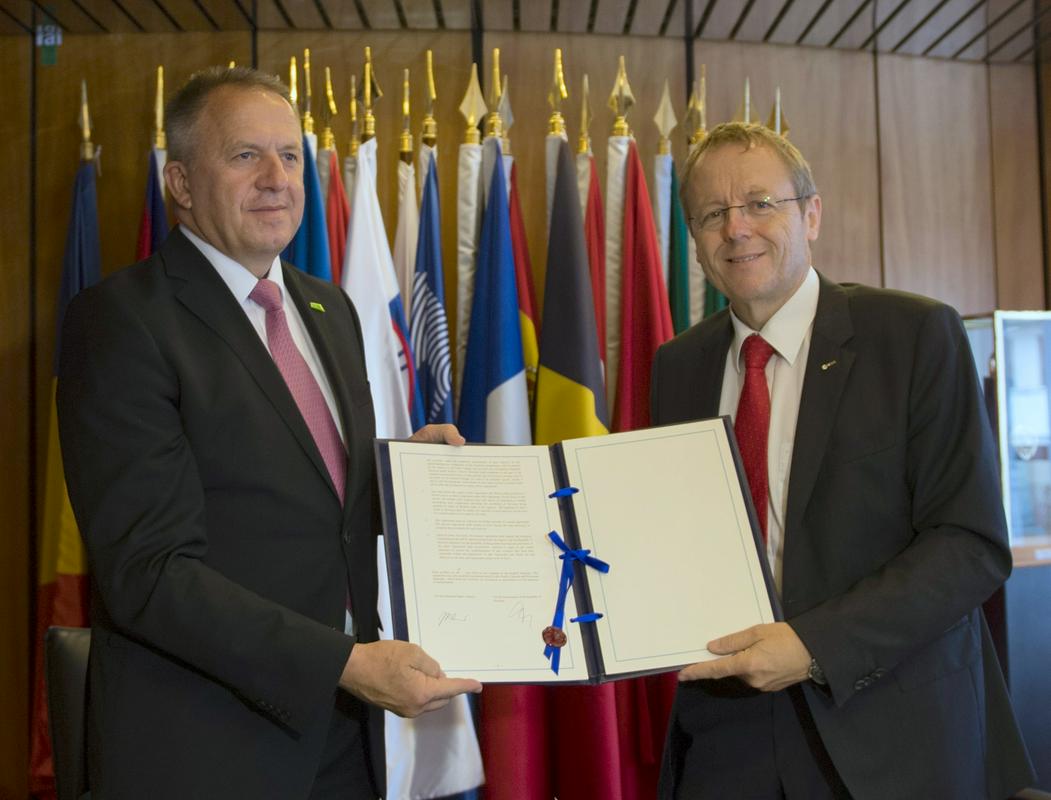
The European Space Agency (ESA) is one of the largest such agencies in the world -- only NASA in the U.S. is larger – and Slovenia has now made the penultimate step to full membership. The Minister for Economic Development and Technology Zdravko Počivalšek and ESA's Director General Johann-Dietrich Wörner signed an agreement regarding Slovenia's associate membership at the organization’s Paris headquarters. The agreement will be valid for five years starting with the ratification of the document in Slovenia's National Assembly. MPs have two years to complete the process. In the meantime, Slovenia will retain its status as a cooperating member until ratification. Membership brings a number of advantages, both in terms of business opportunities and knowledge-sharing in the scientific and technical sectors. To become a full member of this European club, an applicant country must complete a three-step process.
Three steps
The first step is the signing of a cooperation agreement, which is what Slovenia did in 2008; this step has no financial consequences. The country received a “cooperating country” status in 2010, when it signed another important document: a consensual five-year plan calling for the strengthening of resources that can be applied in the space industry. For Slovenia, this phase ended last year, when the country faced its final decision: to abandon its ESA membership, to extend its cooperating member status, or to opt for full membership. Slovenia chose the latter and spent the last year negotiating with ESA.

































































